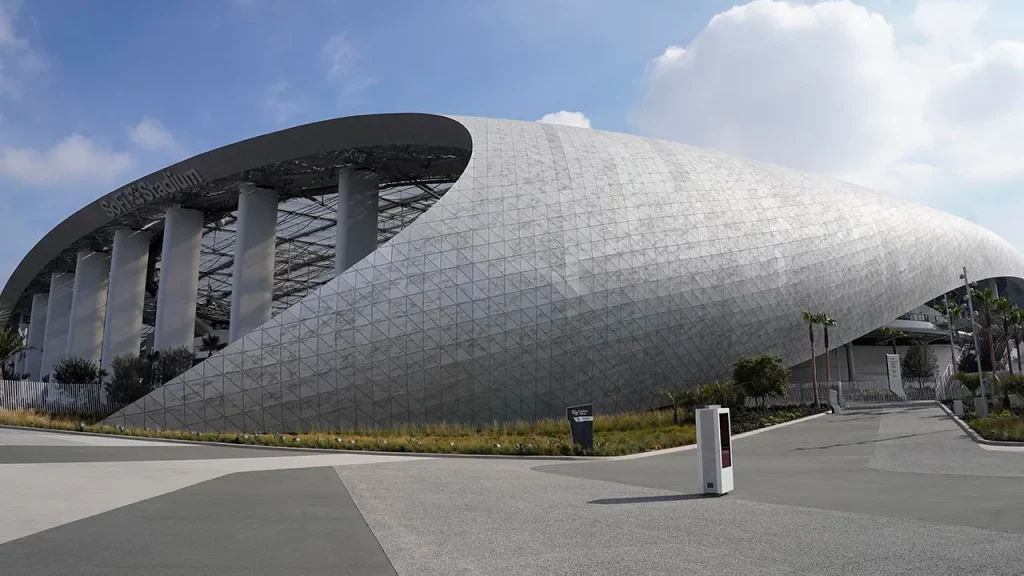The NFL’s Contingency Plan Amidst California Wildfires
The National Football League (NFL) demonstrated its commitment to player safety and public well-being by relocating a crucial playoff game between the Minnesota Vikings and the Los Angeles Rams from its originally scheduled venue in Southern California to State Farm Stadium in Glendale, Arizona. This decision, announced on Thursday, followed a contingency plan revealed the previous day, necessitated by the devastating wildfires raging across the Los Angeles area. The game, a Monday night wild-card matchup, will now take place in the home stadium of the Arizona Cardinals, marking the third Los Angeles sporting event affected by the fires. Previously, both a Kings hockey game and a Lakers basketball game were postponed due to the hazardous air quality and ongoing emergency response efforts.
The NFL emphasized that the relocation was made "in the interest of public safety," a decision reached after extensive consultations with public officials, the participating teams, and the NFL Players Association (NFLPA). The game’s kickoff time remains unchanged at 8 p.m. ET, ensuring minimal disruption to broadcast schedules and fan viewing plans. While the Rams had a scheduled off day on Wednesday, the Los Angeles Chargers, who share SoFi Stadium with the Rams and were preparing for their own wild-card game against the Houston Texans on Saturday, took precautions by limiting their players’ time outdoors during practice due to the poor air quality.
This is not the first time State Farm Stadium has served as an alternate venue due to unforeseen circumstances. In 2003, a game between the Miami Dolphins and the San Diego Chargers was held in Glendale due to wildfires in the San Diego area. More recently, during the challenging 2020 NFL season impacted by the COVID-19 pandemic, the San Francisco 49ers played three "home" games at State Farm Stadium due to restrictions in their home county. This history of accommodating displaced teams underscores the stadium’s suitability as a neutral and well-equipped venue.
The wildfires currently ravaging Southern California, including the Palisades Fire and the Eaton Fire, have caused widespread devastation in communities like Pacific Palisades and Altadena. Fueled by strong Santa Ana winds, the fires have consumed nearly 30,000 acres, forcing the evacuation of at least 130,000 residents. Tragically, at least five lives have been lost, and over 1,000 buildings have been destroyed. The fires have not only displaced residents and disrupted daily life but have also brought renewed attention to the issue of insurance availability in high-risk wildfire zones. Insurers are increasingly hesitant to offer new policies or renew existing ones in these areas, a trend that has drawn criticism from prominent figures in the entertainment industry, further highlighting the economic and social challenges posed by these recurring natural disasters.
The severity of the current situation is underscored by the prolonged absence of significant rainfall in the Los Angeles area. According to the Los Angeles Times, the city has not received at least one-tenth of an inch of rain since May 5, contributing to the dry conditions that exacerbate wildfire risk. The extended drought and the Santa Ana winds have created a dangerous combination, making rapid fire spread more likely and hindering firefighting efforts. This prolonged dry spell highlights the growing concerns about the impact of climate change on California’s vulnerability to wildfires.
The NFL’s decision to relocate the Vikings-Rams game reflects the league’s commitment to prioritizing safety and adapting to unforeseen circumstances. By moving the game to a safe and accessible venue, the NFL has ensured that the game can proceed while minimizing risks to players, staff, and fans. The situation also underscores the broader challenges posed by wildfires, including the need for proactive measures to mitigate risks, improve emergency response capabilities, and address the long-term impacts on communities and the environment. The relocation also serves as a reminder of the importance of contingency planning and the willingness to adapt in the face of unforeseen challenges, not just in the world of sports but in all aspects of life.

